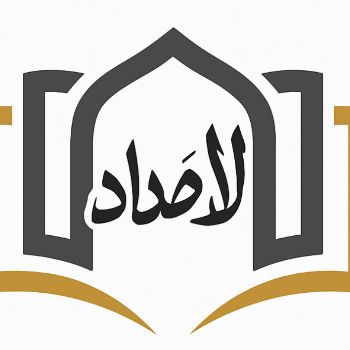
To cultivate a vibrant learning environment within madrasas, it is essential to implement operational approaches that prioritize educational excellence. This involves optimizing administrative procedures to ensure smooth functioning and direct resources effectively towards enriching the academic program. Madrasas should foster a culture of continuous development by embracing innovation and coordination among faculty, staff, and the wider community.
- Furthermore, consistently evaluating student achievement through diverse tools is crucial to pinpoint areas requiring attention and tailoring educational interventions accordingly.
- Providing adequate professional development opportunities for educators can boost their pedagogical skills and equip them to deliver high-quality instruction.
Fostering a Culture of Learning: Effective Madrasa Leadership
The success of any madrasa hinges on its leadership. Visionary madrasa leaders understand that learning is not merely the transfer of knowledge, but rather a continuous process that instills critical thinking, creativity, and spiritual growth. They create an environment where students feel motivated to ask questions, explore ideas, and contribute actively in their own learning. A dynamic madrasa culture embraces diversity of thought and encourages collaboration among students, teachers, and the wider community.
- Furthermore, effective madrasa leaders strive to integrate innovative teaching strategies that resonate with students in meaningful ways. They recognize the importance of providing organized learning experiences, while also allowing for adaptability to meet the diverse needs of each student.
- In essence, effective madrasa leadership is crucial in shaping the next generation of leaders. By promoting a culture of learning, madrasa leaders enable students to excel both academically and spiritually.
Operational Viability in Madrasas
Madrasas, established institutions of Islamic education, often face click here numerous challenges in achieving financial sustainability.
Effective distribution of resources is vital for their continued success. Funding often comes from a varied range of sources, including private donations. {Furthermore|{Moreover|In addition, ensuring accountability in the management of resources is indispensable to build trust among donors.
Implementing strategic fundraising initiatives can help address financial limitations. {Moreover,Investing in human capital through the training and development of educators, along with embracing technological advancements, can enhance the impact of education provided by madrasas.
The ultimate goal is to create a financially secure environment that allows madrasas to prosper and continue their important role in preserving Islamic knowledge.
Enhancing Student engagement and Performance in Madrasas
In the pursuit of nurturing young minds within the esteemed walls of madrasas, it is imperative to foster an environment that ignites academic passion. Madrasas, as centers of Islamic learning, play a essential role in shaping the future generation. To ensure students excel, educators must implement innovative strategies that inspire their minds and cultivate their potential. Dynamic learning methods, such as project-based activities, can successfully enhance student understanding. Furthermore, creating a encouraging classroom atmosphere where students feel respected is critical for their overall growth.
- Exploiting technology in the classroom can provide students with access to a wealth of information and resources, broadening their knowledge base.
- Frequent assessment and feedback are crucial for recognizing areas where students may need extra help.
Curriculum Development and Pedagogical Innovation in Madrasas
In the contemporary educational landscape, Religious Institutions are increasingly adopting curriculum development to elevate the quality of education. This dynamic methodology aims to balance traditional Islamic knowledge with contemporary pedagogical methods, thereby empowering students with the skills and competence necessary for success in the 21st century. Moreover, experimentation is being stimulated within Madrasas to design interactive learning experiences. This includes the integration of technology and practical learning exercises to make education more practical.
- Illustrative Cases of pedagogical innovation in Madrasas include the introduction of interactive whiteboards, debate clubs, and field trips.
- These initiatives are helping to transform Madrasas into progressive centers of education that prepare students for a globalized world.
Modernizing Madrasa Management through Technology
The contemporary/modern/up-to-date madrasa environment/system/setting is rapidly/constantly/continuously evolving/adapting/transforming with the integration of innovative/cutting-edge/advanced technology. Implementing/Utilizing/Adopting technology can significantly/greatly/substantially enhance/improve/boost various aspects of madrasa management, including/such as/like administrative tasks/operational efficiency/educational delivery. Automated/Digital/Online systems can streamline/optimize/simplify processes such as student enrollment/registration/admission, attendance tracking/monitoring/recording, and financial/resource/fund management.
- Furthermore/Moreover/Additionally, technology can provide students/learners/pupils with access to/opportunities for/exposure to a wider range of/broader spectrum of/diverse selection of educational resources, including/such as/like online libraries/textbooks/learning materials. This enriches/complements/supplements the traditional teaching methods/pedagogical approaches/instructional strategies and prepares students for the challenges/demands/requirements of the digital/modern/contemporary world.
- Ultimately/In conclusion/To summarize, technology integration in madrasas presents a valuable/powerful/significant opportunity to modernize/enhance/improve educational experiences, increase efficiency/optimize processes/streamline operations, and prepare students/equip learners/foster the development of the next generation of knowledgeable and skilled individuals.